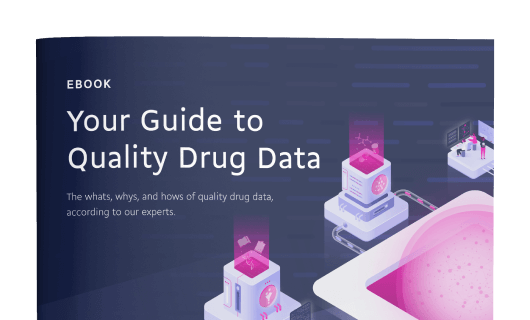Explore a selection of our essential drug information below, or:
Identification
- Summary
Allogeneic processed thymus tissue is a cell transplant therapy indicated for immune reconstitution in pediatric patients with congenital athymia.
- Brand Names
- Rethymic
- Generic Name
- Allogeneic processed thymus tissue
- DrugBank Accession Number
- DB16736
- Background
Allogeneic processed thymus tissue is used for immune reconstitution in immune disorders where the patients are severely immunocompromised due to the absence of a functional thymus, such as congenital athymia. As part of the immune system, the thymus is an organ responsible for the maturation and selection of T cells 3; thus, patients without a functional thymus experience profound immunodeficiency and are placed at higher risk for developing life-threatening or fatal infections and immune dysregulation.5 Congenital athymia is a rare condition that leads to the absence of a thymus at birth and a high premature mortality rate, with patients typically dying by age two or three.5 Multiple factors contribute to the development of congenital athymia, such as genetic abnormalities, congenital syndromes, and environmental factors. Allogeneic processed thymus tissue implantation works by migrating the recipient’s bone marrow-derived stem cells to the implanted cultured thymus tissue that develops immunocompetent naïve T cells.3
On October 8, 2021, FDA approved allogeneic processed thymus tissue-agdc, under the market name RETHYMIC, as a one-time regenerative tissue-based therapy for immune reconstitution in pediatric patients with congenital athymia: this marks the first and only FDA-approved treatment for such therapeutic indication.5
- Type
- Biotech
- Groups
- Approved
- Biologic Classification
- Cell transplant therapies
Other cell transplant therapies - Synonyms
- Allogeneic processed thymus tissue-agdc
- Allogeneic thymocyte depleted processed thymus tissue slices
- Allogeneic thymocyte-depleted thymus tissue-agdc
- Allogenic thymocyte-depleted thymus tissue-agdc
- External IDs
- RVT-082
Pharmacology
- Indication
Allogeneic processed thymus tissue is indicated for immune reconstitution in pediatric patients with congenital athymia. It is not indicated for the treatment of patients with severe combined immunodeficiency (SCID).4
 Reduce drug development failure ratesBuild, train, & validate machine-learning modelswith evidence-based and structured datasets.Build, train, & validate predictive machine-learning models with structured datasets.
Reduce drug development failure ratesBuild, train, & validate machine-learning modelswith evidence-based and structured datasets.Build, train, & validate predictive machine-learning models with structured datasets.- Associated Conditions
Indication Type Indication Combined Product Details Approval Level Age Group Patient Characteristics Dose Form For therapy Congenital athymia •••••••••••• ••••••••• - Associated Therapies
- Contraindications & Blackbox Warnings
 Prevent Adverse Drug Events TodayTap into our Clinical API for life-saving information on contraindications & blackbox warnings, population restrictions, harmful risks, & more.Avoid life-threatening adverse drug events with our Clinical API
Prevent Adverse Drug Events TodayTap into our Clinical API for life-saving information on contraindications & blackbox warnings, population restrictions, harmful risks, & more.Avoid life-threatening adverse drug events with our Clinical API- Pharmacodynamics
Allogeneic processed thymus tissue is an engineered human thymus tissue that is used to regenerate the thymic function 5 and reconstitutes immunity in patients who are athymic to develop immunocompetent naïve T cells. The presence of naïve T cells in the peripheral blood of the recipient is evident of thymic function, although this effect is unlikely to be observed prior to 6-12 months following treatment with allogeneic processed thymus tissue.4 In recent studies of thymus transplantation, thymopoiesis in the transplanted thymus was observed within two months of transplantation and naïve T cells in the peripheral blood were detected in about three to five months after transplantation.1 In an immune evaluation study of thymus recipients surviving beyond 1 year, recipients possessed naïve T cells with normal mitogen proliferative responses and diverse T cell receptor repertoires.2
- Mechanism of action
The thymus is a critical organ of the immune system as it is responsible for the maturation and selection of thymocytes so that they ultimately become naïve T cells. Normally, T cell precursors from the bone marrow migrate to the thymus for maturation and differentiation. Congenital athymia is characterized by the absence of a thymus at birth, leading to the lack of functional T cells and profound immune deficiency; therefore, patients with congenital athymia are at high risk for developing life-threatening or fatal infections as well as autologous graft-versus-host disease.3
Allogeneic processed thymus tissue aims to restore thymic function in patients with congenital athymia. Thymus tissue is obtained from unrelated infant donors to be processed and cultured, so that the thymus tissue preserves thymic epithelial cells but lacks most of the donor thymocytes. The resulting allogeneic processed thymus tissue is then surgically implanted into the muscles of recipients with congenital athymia. T cell progenitors from the bone marrow of the recipient are migrated to the implanted allogeneic processed thymus tissue,4 which provides an environment for progenitor cells to undergo positive and negative selection to develop into naïve immunocompetent recipient T cells.2,4
- Absorption
The pharmacokinetic properties of allogeneic processed thymus tissue are not known.
- Volume of distribution
The pharmacokinetic properties of allogeneic processed thymus tissue are not known.
- Protein binding
The pharmacokinetic properties of allogeneic processed thymus tissue are not known.
- Metabolism
The pharmacokinetic properties of allogeneic processed thymus tissue are not known.
- Route of elimination
The pharmacokinetic properties of allogeneic processed thymus tissue are not known.
- Half-life
The pharmacokinetic properties of allogeneic processed thymus tissue are not known.
- Clearance
The pharmacokinetic properties of allogeneic processed thymus tissue are not known.
- Adverse Effects
 Improve decision support & research outcomesWith structured adverse effects data, including: blackbox warnings, adverse reactions, warning & precautions, & incidence rates. View sample adverse effects data in our new Data Library!Improve decision support & research outcomes with our structured adverse effects data.
Improve decision support & research outcomesWith structured adverse effects data, including: blackbox warnings, adverse reactions, warning & precautions, & incidence rates. View sample adverse effects data in our new Data Library!Improve decision support & research outcomes with our structured adverse effects data.- Toxicity
The LD50 is unknown.
The maximum recommended dose is 22,000 mm2 of allogeneic processed thymus tissue/m2 recipient body surface area (BSA). Standard clinical care is recommended for patients receiving doses higher than the maximum recommended dose. During clinical development, one patient received a dose of 23,755 mm2/m2 and developed enteritis: the biopsy result showed T cell, B cell, and neutrophil infiltration of the gut which resolved after treatment with immunosuppression, five months after treatment with allogeneic processed thymus tissue. Although the clinical understanding of enteritis is unclear, it may be related to the high dose of allogeneic processed thymus tissue.4
- Pathways
- Not Available
- Pharmacogenomic Effects/ADRs
- Not Available
Interactions
- Drug Interactions
- This information should not be interpreted without the help of a healthcare provider. If you believe you are experiencing an interaction, contact a healthcare provider immediately. The absence of an interaction does not necessarily mean no interactions exist.
Drug Interaction Integrate drug-drug
interactions in your softwareAbatacept The therapeutic efficacy of Allogeneic processed thymus tissue can be decreased when used in combination with Abatacept. Adalimumab The therapeutic efficacy of Allogeneic processed thymus tissue can be decreased when used in combination with Adalimumab. Alclometasone The therapeutic efficacy of Allogeneic processed thymus tissue can be decreased when used in combination with Alclometasone. Aldesleukin The therapeutic efficacy of Allogeneic processed thymus tissue can be decreased when used in combination with Aldesleukin. Alefacept The therapeutic efficacy of Allogeneic processed thymus tissue can be decreased when used in combination with Alefacept. - Food Interactions
- No interactions found.
Products
 Drug product information from 10+ global regionsOur datasets provide approved product information including:dosage, form, labeller, route of administration, and marketing period.Access drug product information from over 10 global regions.
Drug product information from 10+ global regionsOur datasets provide approved product information including:dosage, form, labeller, route of administration, and marketing period.Access drug product information from over 10 global regions.- International/Other Brands
- Rethymic (Enzyvant)
- Brand Name Prescription Products
Name Dosage Strength Route Labeller Marketing Start Marketing End Region Image Rethymic Implant 22000 mm/1 Intramuscular Sumitomo Pharma America, Inc. 2021-10-08 Not applicable US
Categories
- Drug Categories
- Not Available
- Classification
- Not classified
- Affected organisms
- Humans
Chemical Identifiers
- UNII
- XD66YK3YY3
- CAS number
- Not Available
References
- General References
- Markert ML, Devlin BH, McCarthy EA: Thymus transplantation. Clin Immunol. 2010 May;135(2):236-46. doi: 10.1016/j.clim.2010.02.007. Epub 2010 Mar 16. [Article]
- Chinn IK, Devlin BH, Li YJ, Markert ML: Long-term tolerance to allogeneic thymus transplants in complete DiGeorge anomaly. Clin Immunol. 2008 Mar;126(3):277-81. doi: 10.1016/j.clim.2007.11.009. Epub 2007 Dec 26. [Article]
- Collins C, Sharpe E, Silber A, Kulke S, Hsieh EWY: Congenital Athymia: Genetic Etiologies, Clinical Manifestations, Diagnosis, and Treatment. J Clin Immunol. 2021 Jul;41(5):881-895. doi: 10.1007/s10875-021-01059-7. Epub 2021 May 13. [Article]
- FDA Approved Drug Products: RETHYMIC (Allogeneic processed thymus tissue–agdc) For surgical implantation [Link]
- Drugs.com: FDA Approves Rethymic [Link]
- External Links
Clinical Trials
- Clinical Trials
Clinical Trial & Rare Diseases Add-on Data Package
Explore 4,000+ rare diseases, orphan drugs & condition pairs, clinical trial why stopped data, & more. Preview package Phase Status Purpose Conditions Count Start Date Why Stopped 100+ additional columns Unlock 175K+ rows when you subscribe.View sample dataNot Available Recruiting Not Available Complete DiGeorge Syndrome / Congenital athymia 1 somestatus stop reason just information to hide
Pharmacoeconomics
- Manufacturers
- Not Available
- Packagers
- Not Available
- Dosage Forms
Form Route Strength Implant Intramuscular 22000 mm/1 - Prices
- Not Available
- Patents
- Not Available
Properties
- State
- Not Available
- Experimental Properties
- Not Available
Drug created at October 12, 2021 14:49 / Updated at November 28, 2021 16:22

